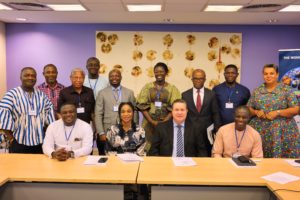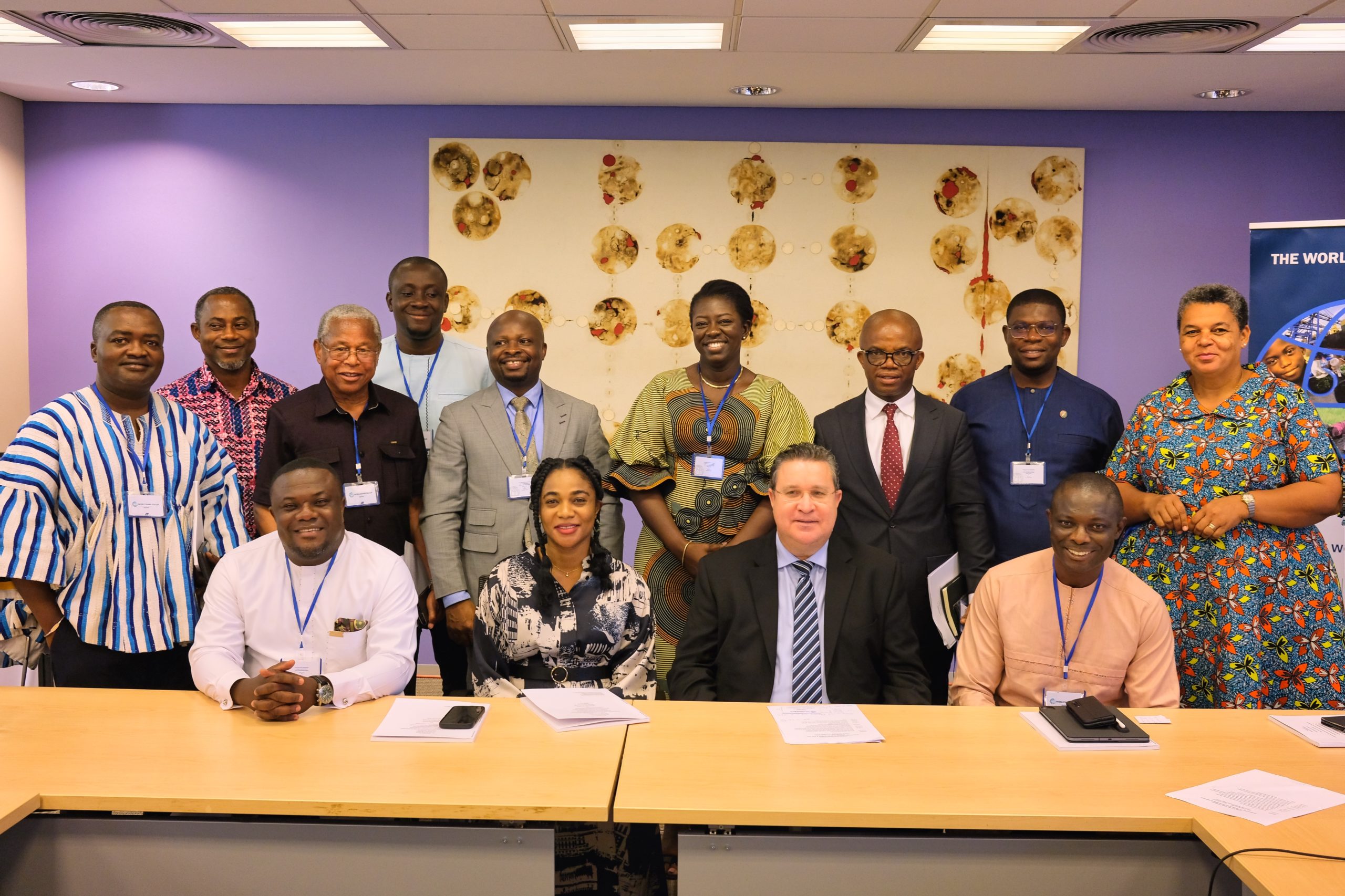
Accra, Ghana//-Ghana Chapter Parliamentary Network on the World Bank & IMF (PN) has been relaunched after eight years of dormancy.
The Ghana Chapter which was established in 2011 but has been dormant since 2013, following the exit of Parliament by key members of the Finance Committee of Parliament.
However, in recent times, there has been elevated commitment on the part of some members of Ghana’s Parliament, culminating in its relaunch on Friday, October 7, 2022, at the World Bank Ghana Office in Accra.
The Network provides a platform for parliamentarians from World Bank and IMF member countries to advocate for increased accountability and transparency in International Financial Institutions and multilateral development financing, the World Bank Country Director for Ghana, Pierre Laporte explained at the relaunch.
Chapter according to him, also aims to strengthen the position of parliamentarians among international financial institutions and other development stakeholders.
Call for value for money in public investments
Mr Laporte used the occasion to call for value for money in public investments which is very critical at this time.
In his words: “To really make a difference and “Together Transform Ghana”, we must really make sure that there is value for money in public investments for the delivery of basic services to citizens”.
We have worked on audits, public finances processes and so on and all of that is fine. But the most important thing, I think, is that citizens all around Ghana including their Parliamentary representatives need to monitor what is being done”.
This monitoring, Mr Laporte explained, could greatly contribute to getting the best value for money. If that happens, nothing can stop Ghana from reaching where it wants to be, he added.
Challenges remain
The World Bank has since 1957 approved more than 216 projects and disbursed over $10.2 billion and Mr Laporte and his colleagues at the bank believe that they have contributed to the continuous reduction of poverty in Ghana over the decades.
However, there is no denying that challenges remain. Not everyone has a decent job, access to key services especially in new urban hubs is still low and access to finance is still tough for many new Ghanaian businesses, he noted.
Although Ghana achieved the first Millennium Development Goal of halving poverty from 52.7 percent (1993) to 23.4 percent (2016), which propelled Ghana to the forefront of poverty reduction in Africa and improved human development indicators considerably over this period.
Nonetheless, over 20 percent of Ghana’s population still lives in poverty with the poor concentrated in the five regions of the north where poverty remains above 50 percent.
Natural resource sector has not generated jobs
The dominant natural resource sector such as gold, oil, timber etc.- has not generated the jobs needed to lift large numbers of people out of poverty.
Despite significant progress in service delivery and human capital, disparities in access and quality persist across many facets. These trends have been complicated by at times unsustainable natural resource exploitation and its high susceptibility to climate change.
The COVID-19 pandemic and Russia-Ukraine war has interrupted Ghana’s growth and exacerbated macroeconomic and structural challenges, including debt vulnerabilities and energy sector fiscal risks.
High fiscal deficits and increasing public debt have elevated Ghana’s country risk, limited Foreign Direct Investment in non-commodity sectors, and increased the cost of finance for private businesses.
Sustain its lower middle income country status
Despite recent challenges, Mr Laporte is convinced that Ghana can sustain its lower middle income country status to become a fully-fledged middle-income country. The World Bank Group reiterates its continuous support to help in that process.
He believes that the World Bank Group has played a significant and positive role for Ghana.
“Today, we bring approximately US$500 million a year for roads, energy, water, health, education, jobs and skills, social safety, governance, and assistance to improve the business environment.
But in the end, we are only part of the solution. The solution lies with Ghana. We will be there with whatever we can do to support new thinking, to contribute international experience, knowledge, and data and to provide financing”.
Commendations
Mr Laporte also used the opportunity to commend the leadership of Kwabena Appiah Pinkrah and his team, who first launched Ghana Chapter on 14th July 2011 and the present leadership of Kwaku Kwarteng, MP and Chair of PN, Ghana Chapter and MP and Vice Chair, Dr Ato Cassiel for relaunching it.
“In the context of our outreach activities we look forward to working closely with PNoWB/IMF in the implementation of the World Bank Group Country Partnership Framework (CPF) which seeks to support Ghana in its recovery from the pandemic and to lay the foundation for resilient, inclusive, and sustainable development, supported by a strong private sector to realize Ghana’s aspirations of becoming an economically self-reliant country with greater opportunities for all Ghanaians”.
This CPF reflects the World Bank Group’s commitment to work with the government and the people of Ghana in their pursuit of becoming an economically self-reliant country with greater opportunities for all Ghanaians.
Assurance
The Chair of the PN and UK MP, Liam Byrne in a remark, assured the Ghana Chapter that they are determined to mobilise the global community to support the Ghana Chapter to succeed.
While the Ghana Chapter Chair and Vice Chair pledged to work assiduously to ensure that the Chapter does not become a nine-day wonder.


